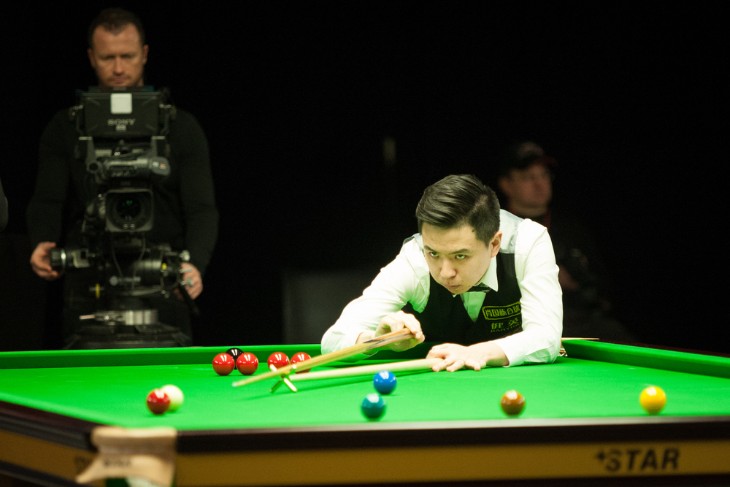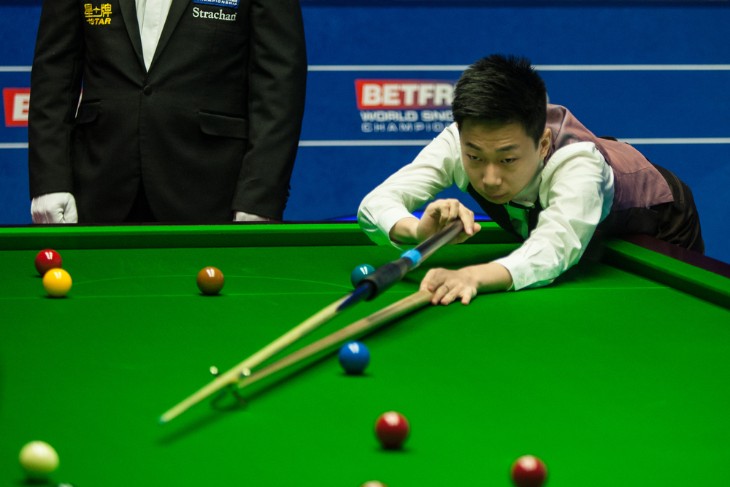- The Shocking Match-Fixing Allegations: Shaking the Foundations of Snooker
- The Colourful Characters and Their Temperamental Antics
- The Rivalries That Turned Bitter: More Than Just a Game
- Doping in Snooker: The Unseen Enemy
- The Impact of Media and Public Opinion on Snooker's Image
- The Breakaway Leagues and Governance Disputes
- Gender Equality and Inclusivity in Snooker
- The Role of Technology in Snooker Controversies
- Financial Struggles and Sponsorship Issues
- In Summary
Snooker, a game of skill, precision, and strategy, has long captivated audiences around the globe. However, beneath the surface of this seemingly genteel sport lies a history peppered with some of the most intriguing and sensational controversies and scandals.
In this article, we delve into the world of snooker beyond the green baize, exploring various incidents that have stirred the pot and made headlines. These stories not only reveal the high-pressure environment in which these athletes operate but also shed light on the complex human narratives behind each cue action.
The Shocking Match-Fixing Allegations: Shaking the Foundations of Snooker
Match-fixing allegations have been a major issue in snooker, causing fans and players alike to question the sport's integrity. These allegations involve players accused of deliberately losing matches or playing poorly on purpose. The reasons? Often, it's for money. Such claims have led to serious consequences. Players have faced investigations, suspensions, and even career-ending bans.
One notable case involved a top-ranked player. He was accused of agreeing to lose frames in exchange for money. This scandal rocked the snooker world. It wasn't just about one player; it raised doubts about the fairness of the sport as a whole. Fans started to wonder: are the matches we're watching truly honest? Are some outcomes pre-arranged?
The governing bodies of snooker took these allegations seriously. They set up strict rules and monitoring systems to catch any foul play. Players found guilty of match-fixing faced tough punishments. These measures were crucial. They helped to clean up the sport's image and restore trust among fans and players.
But the impact of these scandals lingered. They showed that even in a sport based on skill and precision, unethical behaviour could creep in. It was a wake-up call for everyone involved in snooker. Players, officials, and fans all realised the importance of maintaining the sport's integrity. Only with strict vigilance and a commitment to fairness could Snooker continue to be a beloved and respected sport worldwide.
[promotion:173]
The Colourful Characters and Their Temperamental Antics
Snooker is not just about hitting balls; it's also about the players' personalities. Over the years, the sport has seen its share of colourful characters. These players are known not just for their skills but also for their temperamental antics. Their behaviours have often caught more attention than their gameplay.
One famous player was known for his quick temper. He would sometimes argue with referees over decisions. His outbursts were unexpected and often changed the mood of the match. Another player was famous for his unusual antics on the table. He would make jokes, play trick shots, and entertain the crowd. This behaviour made him a fan favourite, but some saw it as not taking the game seriously.
These temperamental players added drama to snooker. Their actions made headlines and brought a different kind of excitement to the game. Some fans loved it. They thought these antics made the players more relatable and the game more fun to watch. But others disagreed. They felt that such behaviour was unprofessional and hurt the sport's image.
The sport's governing bodies sometimes had to step in. They set rules about player conduct. Players who crossed the line faced fines or bans. This was to keep the sport professional and respectful. But even with these rules, the colourful personalities of some players continued to shine through.
In the end, these players showed that snooker is about more than just skill. It's also about the people playing the game. Their unique personalities and temperaments brought an extra layer of excitement to the sport. They reminded fans that at its heart, snooker is a human game, full of emotion and character.

The Rivalries That Turned Bitter: More Than Just a Game
In snooker, rivalries often go beyond friendly competition. Some have turned bitter, affecting both the game and the players involved. These rivalries are not just about winning or losing. They often involve personal feelings, making the matches more intense.
One famous rivalry started as a clash of playing styles. But soon, it became personal. The players would often make sharp comments about each other in interviews. Their matches were tense. Fans could feel the rivalry wasn't just on the table. It was in their words and attitudes too. This made their games highly anticipated. People were not just watching for the snooker skills, but also for the drama between the players.
Another rivalry involved two top players. They were both very skilled, but their personalities clashed. One was calm and collected, while the other was more expressive. Their differences led to a deep rivalry. Their matches were more than just about points. They were about proving who was the better player, both in skill and character.
These bitter rivalries brought an extra level of excitement to snooker. They made the headlines and drew more fans to the sport. But they also showed a different side of the game. They highlighted how personal feelings can affect professional sports.
The sport's officials sometimes had to intervene in these rivalries. They reminded players to keep their conduct professional. But the rivalries continued to be a talking point. They added a human element to the sport. They showed that snooker is not just about playing the game. It's also about the people playing it, their feelings, and their relationships with each other. These rivalries made the sport more relatable and intriguing to the fans.
Doping in Snooker: The Unseen Enemy
Doping, the use of banned substances, is a problem in many sports, including snooker. It's not as common in snooker as in other sports, but it still happens. Players might use these substances to perform better under pressure or to stay focused during long matches.
In some cases, players have been caught using drugs that are not allowed. This has led to serious consequences. They face bans, fines, and damage to their reputations. When a player is found doping, it shocks fans and other players. It raises questions about fairness and the integrity of the sport.
The sport's governing bodies have strict rules against doping. They test players regularly to make sure everyone is playing fairly. This is important to keep the competition clean and to protect the health of the players. Doping can have serious health risks, and the authorities want to prevent that.
Some players have spoken out against doping. They want the sport to be clean and fair. They believe that skill and practice should decide who wins, not banned substances. These players are role models for playing the game the right way.
Doping scandals remind us that snooker is not just a game of skill. It's also about making the right choices and respecting the sport. The fight against doping is ongoing. The authorities, players, and fans all play a part in keeping the sport clean. They work together to ensure that snooker remains a game of skill, focus, and fair competition.
The Impact of Media and Public Opinion on Snooker's Image
The media and public opinion play a big role in how people see snooker. When scandals or controversies happen, they often get a lot of attention. This can change how people think about the sport.
Snooker news, whether good or bad, spreads fast. In the past, people got their news from newspapers and TV. Now, social media makes news spread even faster. This means that when something big happens in snooker, everyone hears about it quickly. Stories about match-fixing, player behaviour, or other scandals can make the sport look bad. This can turn some people away from watching or playing snooker.
The way the media talks about snooker also matters. If they focus only on the negative parts, it can harm the sport's image. But, if they also show the good parts, like the skill of the players and the excitement of the game, it can help. Good stories can bring in new fans and keep the current ones interested.
Public opinion can change how snooker is seen. When fans and players speak up about what they like or don't like, it can lead to changes. For example, if many people say they don't like how a rule works, the officials might think about changing it. This shows that everyone who cares about snooker has a voice.
[promotion:1149]
The Breakaway Leagues and Governance Disputes
In snooker, there have been times when players and officials disagree about how to run the sport. These disputes have led to the formation of breakaway leagues and debates about who should be in charge.
Breakaway leagues happen when a group of players decide to start their competition. They do this because they are unhappy with how the main league is being run. They might disagree with the rules, how prize money is shared, or other decisions. These new leagues created a big change in the snooker world. They can split the players and fans into different groups.
Governance disputes are about who makes the decisions in snooker. Sometimes, players feel that the people in charge are not listening to them. They want more say in how the sport is run. These disputes can lead to arguments and sometimes legal action. They can make the sport seem unstable and can confuse the fans.
When these issues happen, they can be tough to solve. Both sides – the players and the officials – believe they are right. They have to talk to each other and try to find a solution that works for everyone. This is important to keep snooker strong and united.
The sport's leaders need to listen to the players. They also need to make sure the sport stays fair and exciting for the fans. At the same time, players need to understand the challenges of running a sport. They need to work with the officials, not against them.
Gender Equality and Inclusivity in Snooker
Gender equality and inclusivity are big topics in snooker. For a long time, the sport has been mainly played by men. But now, there's a push to get more women and diverse players involved.
One issue is that there haven't been as many opportunities for women in snooker. Most big tournaments and leagues are for men. This means women players don't get the same chances to show their skills or to earn prize money. People are now saying this needs to change. They want to see more tournaments and support for women players.
Another point is about making snooker more welcoming for everyone. This includes people from different backgrounds and cultures. Snooker is a global sport, and it should reflect that. Everyone should feel they can be part of it, no matter who they are.
Some positive steps are being taken. There are now more events for women and efforts to promote diversity in the sport. These changes are helping to make snooker more inclusive. But there's still a lot of work to do.
Fans and players are speaking up about these issues. They believe that snooker will be better if it's more open and fair. They want to see players judged on their skill, not their gender or background.

The Role of Technology in Snooker Controversies
Technology has become a big part of snooker, but it also brings controversies. One major area is the use of video replays. These replays help referees make better decisions. But sometimes, they can cause arguments. Players might not agree with what the video shows. Or they might feel it breaks the flow of the game.
Another issue is how technology affects the game itself. Some people worry that too much tech might change the sport too much. They think snooker should stay traditional, focusing on skill and practice. However, others believe that using new tech can make the game better. It can help players train and improve.
Tech like slow-motion cameras and 3D modelling is now common in snooker. These tools let players and coaches analyse the game in detail. They can see exactly how the balls move and how shots work. This helps players learn and get better. But it also means the game is changing. It's becoming more about using data and tech to win.
The way snooker is shown on TV and online has also changed because of technology. Fans can now watch matches from anywhere. They can see replays and stats on their screens. This makes watching snooker more exciting. But it also puts more pressure on players. They know that every move they make is being watched closely.
Financial Struggles and Sponsorship Issues
Technology plays a big role in snooker, but it also brings some controversies. One key area is video replays. They help referees make accurate calls. But they can cause disputes. Players might disagree with what the video shows, or think it interrupts the game.
Another issue is how technology could change snooker. Some worry that too much tech might alter the sport's essence. They argue snooker should focus on player skill, not technology. Others believe tech can enhance the game, aiding player training and skill development.
Techs like slow-motion cameras and 3D modelling are common in snooker. These tools let players and coaches analyse play in detail. They can see ball movements and shot mechanics, aiding learning and improvement. But this changes the game dynamic, shifting focus towards data and technological insights.
Technology also transforms how snooker is broadcast. Fans can watch matches from anywhere, with instant replays and stats. This adds excitement for viewers but increases pressure on players, who are under constant scrutiny.
The challenge with technology in snooker is finding balance. It's crucial to embrace tech advancements to enhance the game. Yet, preserving snooker's core as a skill-based sport is equally important. Properly integrated, technology can help snooker grow and remain captivating for future generations.
In Summary
Snooker has faced many challenges, from match-fixing scandals to debates about technology. But it has shown great resilience. Each controversy has led to changes that make the sport stronger. Snooker has adapted, proving it can overcome difficulties.
The sport's heart remains the same: it's a game of skill and strategy. The players, officials, and fans all play a part in keeping it this way. They work together to solve problems and keep the game fair and exciting.
Snooker's ability to bounce back from tough times is impressive. It continues to draw in fans and inspire new players. This resilience is what makes snooker a beloved sport around the world. It's more than just a game on the table. It's a sport that constantly evolves and thrives, no matter the challenges it faces.
For more information:
[promotion:1150]





 (1).webp)






.webp)















